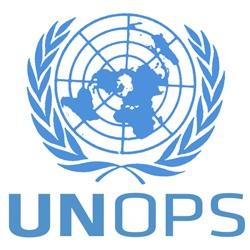Location
The United Nations Office for Project Services (UNOPS) is an operational arm of the United Nations, dedicated to implementing projects for the United Nations System, international financial institutions, governments and other partners around the world.
Members:
Resources
Displaying 26 - 30 of 33Global Environment Facility (GEF) Small Grants Programme in Ecuador
General
UNOPS Small Grants Cluster provides full-cycle grant management and programme support services, supporting sustainable livelihoods around the world.\nAs part of this, UNOPS supports the Global Environment Facility (GEF) Small Grants Programme that helps protect poor, remote villages from the serious effects of climate change and environmental degradation. In an effort to support community-led initiatives, UNOPS efficiently channels direct grants to help communities cope with climate change, conserve biodiversity, protect international waters, reduce the impact of persistent organic pollutants, prevent land degradation, and adopt sustainable forest management practices.\nThis project component is for support in Ecuador.\n
Support to the Global Environment Facility (GEF) Small Grants Programme in Francophone Arab States
General
UNOPS supports the Global Environment Facility (GEF) Small Grants Programme that helps protect poor, remote villages from the serious effects of climate change and environmental degradation. In an effort to support community-led initiatives, UNOPS efficiently channels direct grants to help communities cope with climate change, conserve biodiversity, protect international waters, reduce the impact of persistent organic pollutants, prevent land degradation, and adopt sustainable forest management practices.
Support to the Global Environment Facility (GEF) Small Grants Programme in Francophone Africa
General
UNOPS supports the Global Environment Facility (GEF) Small Grants Programme that helps protect poor, remote villages from the serious effects of climate change and environmental degradation. In an effort to support community-led initiatives, UNOPS efficiently channels direct grants to help communities cope with climate change, conserve biodiversity, protect international waters, reduce the impact of persistent organic pollutants, prevent land degradation, and adopt sustainable forest management practices. This installment of the small Grants Programme targets the Francophone Africa.
Support to the Global Environment Facility (GEF) Small Grants Programme in Anglophone Arab States
General
UNOPS supports the Global Environment Facility (GEF) Small Grants Programme that helps protect poor, remote villages from the serious effects of climate change and environmental degradation. In an effort to support community-led initiatives, UNOPS efficiently channels direct grants to help communities cope with climate change, conserve biodiversity, protect international waters, reduce the impact of persistent organic pollutants, prevent land degradation, and adopt sustainable forest management practices.
Wildlife Without Borders-Western Hemisphere
General
The long term conservation of the ecosystems in Mexico will only be achieved through the active participation and involvement of owners and users around them. In 2012, Terra began working with indigenous communities, ejido (community owned and operated lands) and private land owners to identify conservation priority areas and create an integrated community management plan within the Arroyo Guadalupe watershed. In 2013, Terra in collaboration with the National Commission of Natural Protected Areas, the Secretariat of Environmental Protection of the State of Baja California, the Institute for Research and Land Use Planning of the municipality of Ensenada, and the support of the local communities will expand its work to the San Simon watershed, the last pristine bay of the northern hemisphere. Through this project the Grantee will: 1) implement 21 workshops for 180 land owners on integrated community management techniques (zoning, design and implementation of management plans for private natural protected areas, payment for environmental services, and water funds ) that promote the conservation of natural resources while contributing to their welfare and economic development; 2) identify areas of conservation and restoration priority; and 3) design water funds programs for future implementation in the Arroyo Guadalupe and San Simon watersheds. Project products include the editing and distribution of four training manuals on the topics mentioned before.


